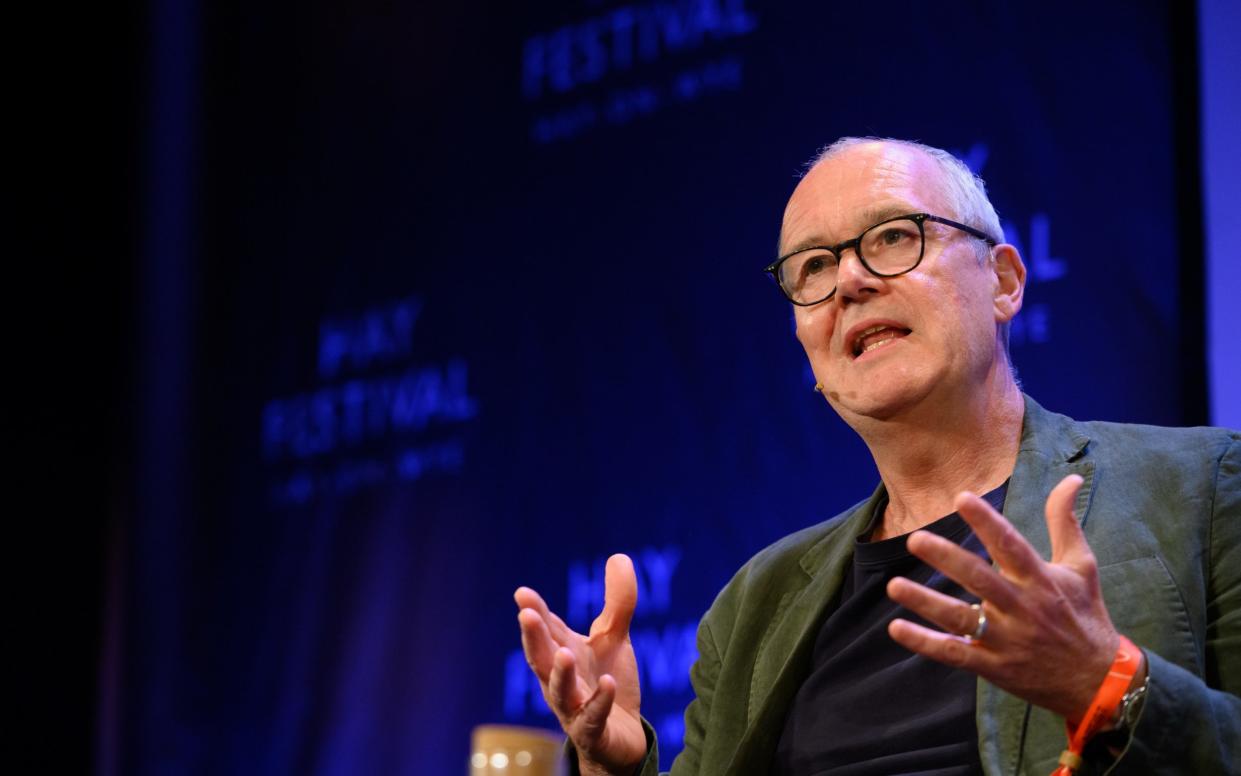Sir Patrick Vallance: We must experiment with LSD as a depression cure

Sir Patrick Vallance has called for more trials into the use of ecstasy and LSD to combat depression.
Sir Patrick, until last month the Government’s chief scientific adviser, suggested that it was an interesting field of research.
At the Hay Festival, he heard from an audience member who asked if their 107-year-old grandmother, who was suffering from depression, could be helped by taking psychedelic drugs.
“I don’t think you can slip your grandmother an ecstasy tablet. We’ve got to test these things,” Sir Patrick said.
However, he went on: “One of the really shocking things is how few people are in clinical trials. We don’t know what we’re doing most of the time – why wouldn’t you have more people in clinical trials, and try to find out?
“There is a lot of enthusiasm around psychedelics at the moment. Some of that is pretty anecdotal. Why don’t we stop it being anecdotal and actually work it out properly?
“Healthcare systems can be much more geared towards asking the questions, testing the things properly, getting the answers as quickly as possible.”
Sir Patrick was sharing the stage with Dame Kate Bingham, former chair of the UK’s vaccine taskforce. She said: “Treatment-resistant depression is a massively important mental health challenge.
“From a regulatory perspective, I think it’s going to be challenging to work out: how do you regulate psychedelics so that they can be safely given to the over-85s or the young adolescents who are in a really bad way?
“I do think this is an area of real excitement.”
‘Politicians are the decision-makers’
Sir Patrick also discussed his role as chief scientific adviser during the Covid-19 crisis, and said it had been wrong for the Government to say that it was “following the science” by bringing in lockdown restrictions.
“It can never be right, in the sense that science is an input, not an output. I think ‘informed by [the science]’ is appropriate. It’s not the right way to express it.
“As a civil servant, your job is not to be the policymaker. The politicians are the decision-makers – rightly so, in a democracy.”
He said that the Civil Service should recruit more people with a science background and there is “a lot to do to upskill the whole place”.
A review undertaken after he was appointed to the government role in 2018 found that only 10 per cent of graduates on the Civil Service “fast stream” programme had a STEM (science, technology, engineering and mathematics) degree.
“That is clearly not good enough,” Sir Patrick said. “I’m pleased that now there is a target of 50 per cent. Arts and humanities is incredibly important, but it should be more like 50:50.”
Sir Patrick also described his role in providing Boris Johnson with evidence of the climate crisis, which the former prime minister has described as his “road to Damascus moment”.
“In 2019, there was a growing climate scepticism around No 10 and a number of special advisers and others who were pushing for a lot of re-analysis of where things were. And I was worried about that and didn’t quite know how to tackle it.
“I decided that the right route would be to give a completely factual, neutral, non-campaigning tutorial if the prime minister would take one,” Sir Patrick said.
“He did take it, and we brought some experts together and spent two hours going through some of the facts and figures. There was one graph that caught his eye.
“If you go down in Antarctic ice you can pick up ice from 800,000 years ago. In that ice there are trapped bubbles of air and you can measure the carbon dioxide content. For 800,000 years carbon dioxide goes up and down a bit. You get to the Industrial Revolution, and it goes off the scale.
“It’s a very visually dramatic graph. That’s the thing where he said: ‘OK, this is real. We’ve got to do something about that.’”

 Yahoo News
Yahoo News 
